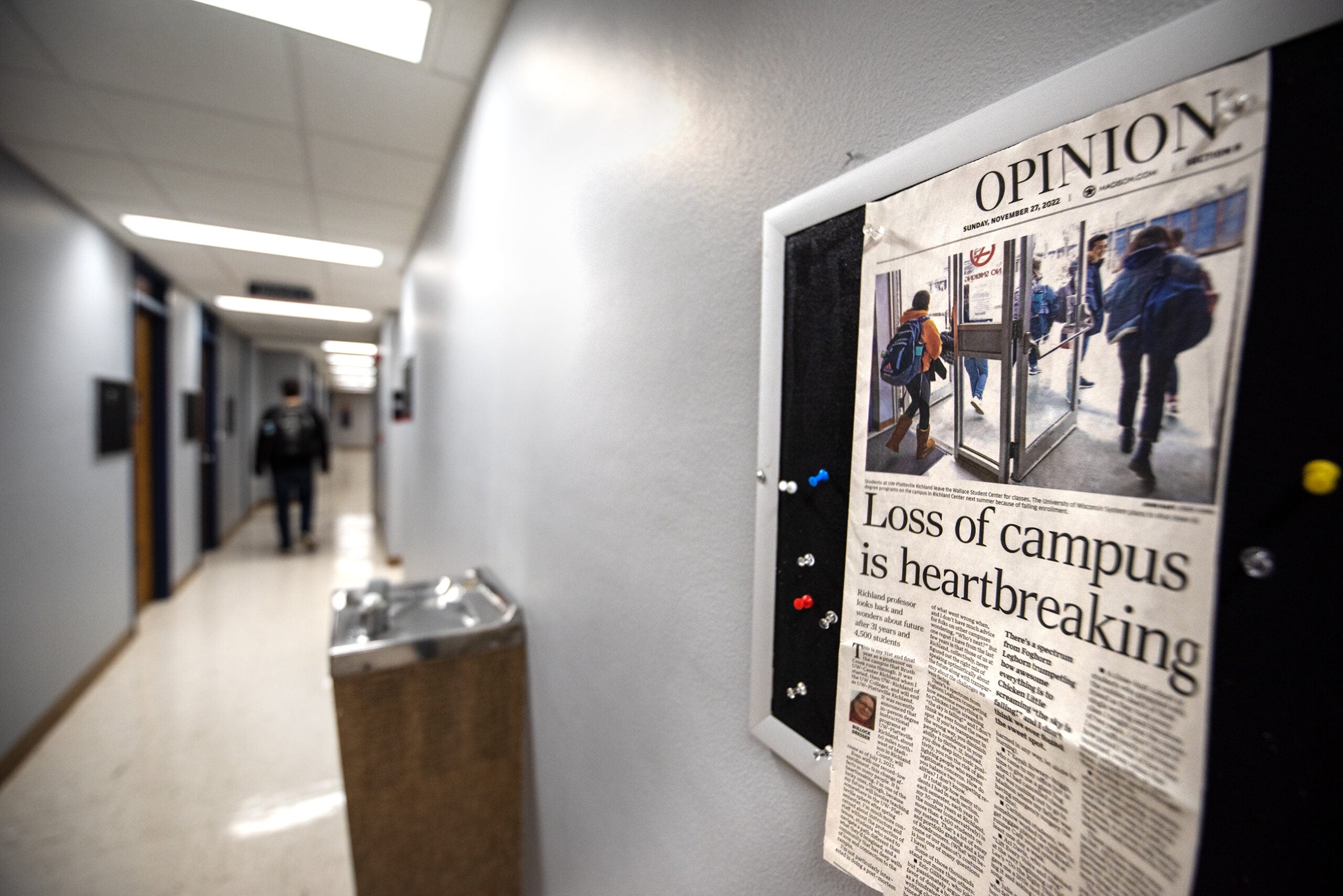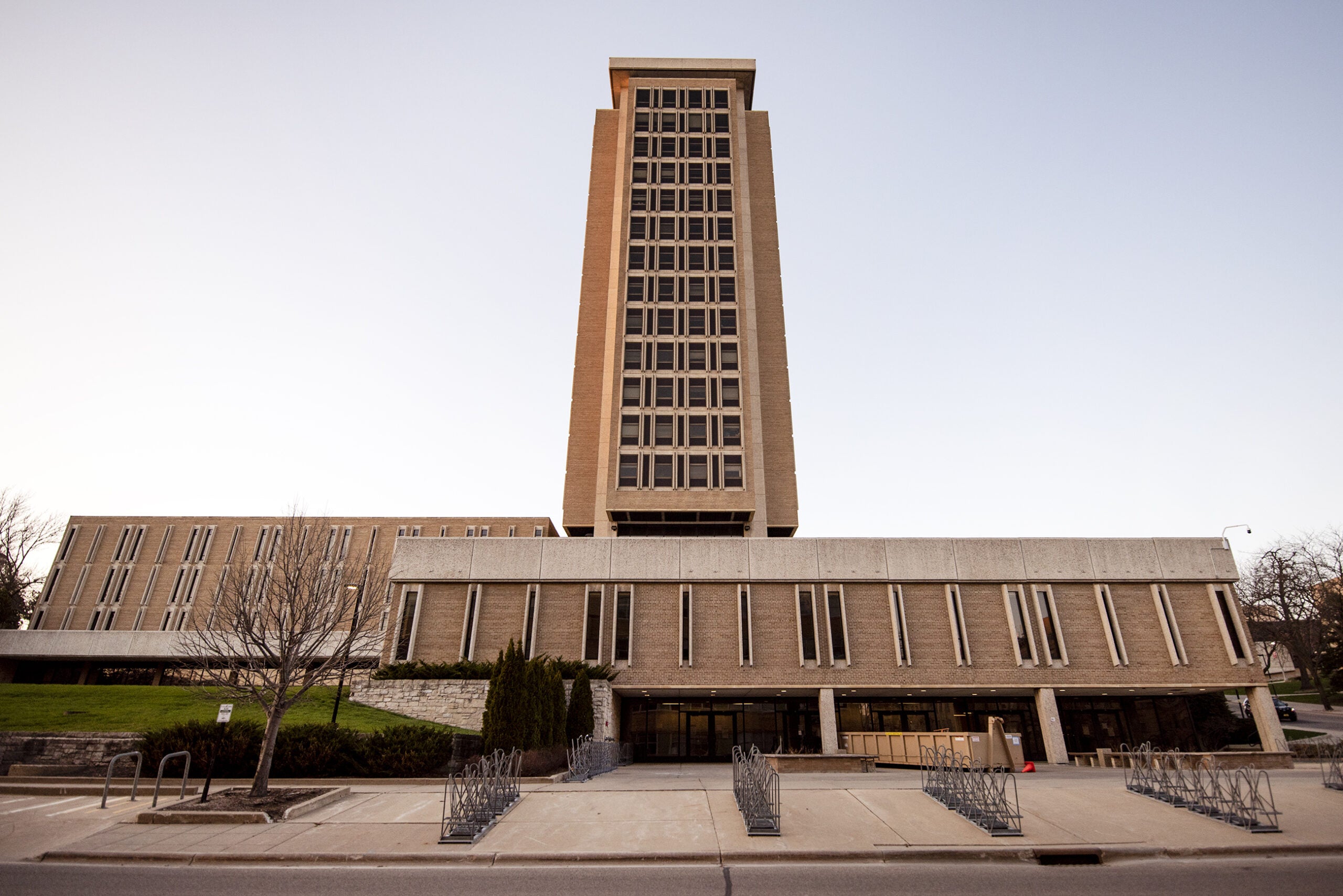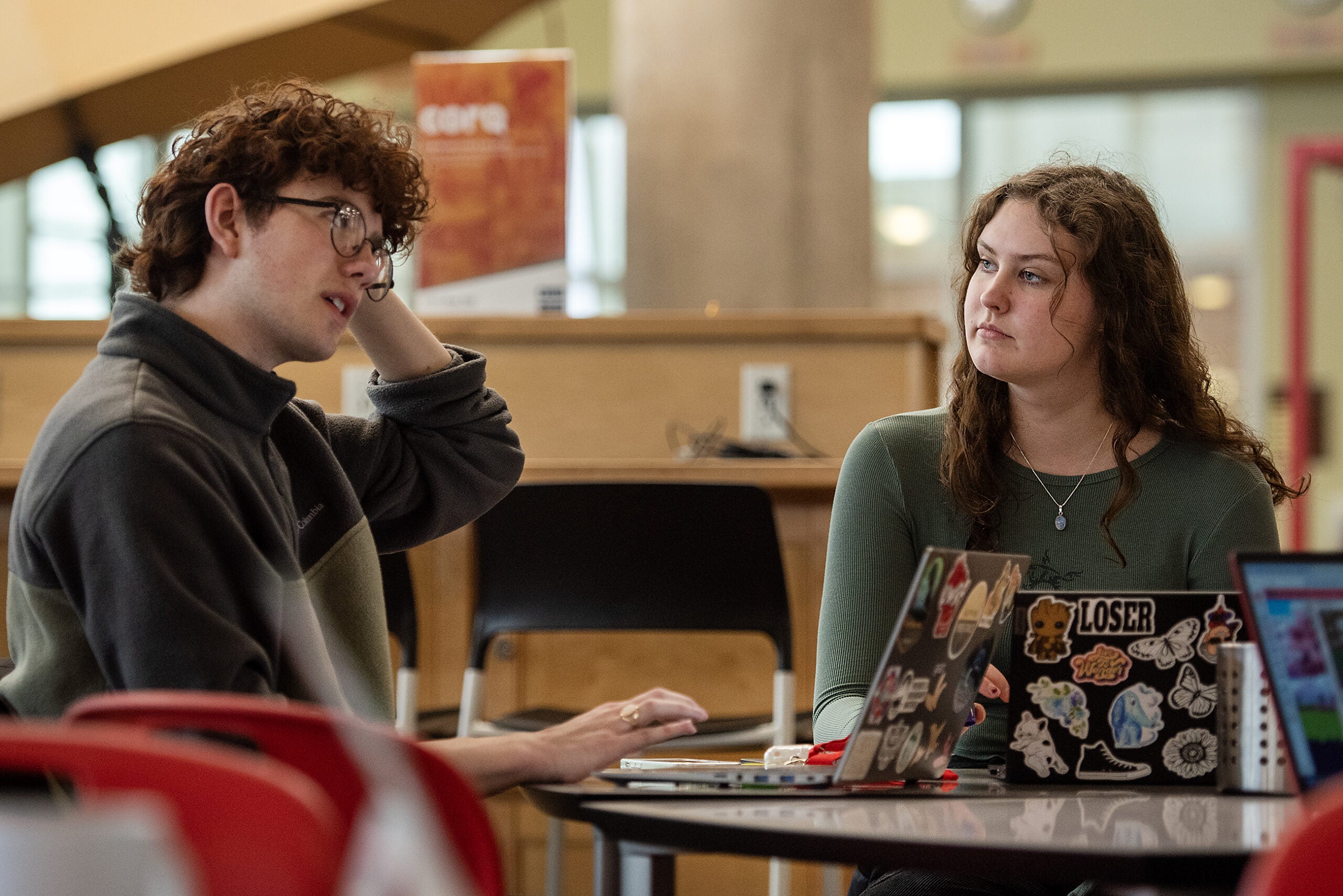A member of the University of Wisconsin System’s governing board says state universities shouldn’t be “compelling or coercing” students to get vaccinated against COVID-19. This comes a day after interim UW System President Tommy Thompson announced a plan to incentivize vaccinations by lifting testing requirements for students that get them.
During a Thursday meeting of the UW Board of Regents, Bob Atwell, who has been with the board since 2017, asked colleagues to seriously consider transitioning away from “controlling population behavior” and encouraging students, staff and faculty to make their own decisions regarding personal risk management.
The COVID-19 pandemic has had psychological, economic and medical impacts, said Atwell. He said the UW System should follow the “scientific method” as campuses plan for the fall semester.
Stay informed on the latest news
Sign up for WPR’s email newsletter.
Atwell said he thinks there are unknown risks to the current COVID-19 vaccines being distributed, despite the Centers for Disease Control and Prevention saying the vaccines are safe, effective and that long-term side effects are “extremely unlikely.”
Atwell said his own doctor advised him not to be vaccinated because of natural antibodies he developed after becoming infected with COVID-19 in October.
That advice goes directly against the advice of the Centers for Disease Control and Prevention, who say “you should be vaccinated regardless of whether you already had COVID-19.” While there’s evidence having had the virus provides some immunity, experts don’t know how long that protection lasts after recovering from COVID-19.
But Atwell suggested students should “question whether the unknown risks of the vaccine justify the potential benefits.”
“It seems to me especially reasonable for our students to question the potential benefits of the vaccine when our own data appears to indicate that it would have little discernible benefit in that population,” he said, referring to the fact that younger populations are less likely to experience severe complications from contracting COVID-19.
Wisconsin Department of Health Services data show that around 1 percent of people between 20 and 29 years of age have been hospitalized after testing positive for COVID-19. But On Thursday, state epidemiologist Dr. Ryan Westergaard said a recent rise in positive cases is being driven by young people, making immunity among those populations even more important.
More broadly, Atwell said the UW System should rethink attempts to control populations on campuses and leave it up to individuals to decide their own approaches to risk management.
“I think this body, not just with respect to the pandemic, but with respect to other matters as well, has far greater deliberative capacity than we have exercised in recent years, not just in the last year,” said Atwell.
Regent President Drew Petersen told Atwell that the UW System can get him more data about student hospitalizations and deaths related to the pandemic.
“Fortunately, they were very far and few in between,” said Petersen.
Petersen didn’t respond directly to Atwell’s concerns about compelling students to get vaccinated.
On Wednesday, Thompson, who led the U.S. Department of Health and Human Services under President George W. Bush, said he thinks everyone should be vaccinated, but noted that some may have religious or political objections.
Thompson announced a directive to the UW’s 13 chancellors to lift weekly COVID-19 testing requirements for students who are vaccinated. Thompson said the goal was to incentivize students to do so before leaving campus for summer break. He told regents his goal is for 90 percent of students to be vaccinated before they leave campus for summer break in May.
Wisconsin Public Radio, © Copyright 2024, Board of Regents of the University of Wisconsin System and Wisconsin Educational Communications Board.





